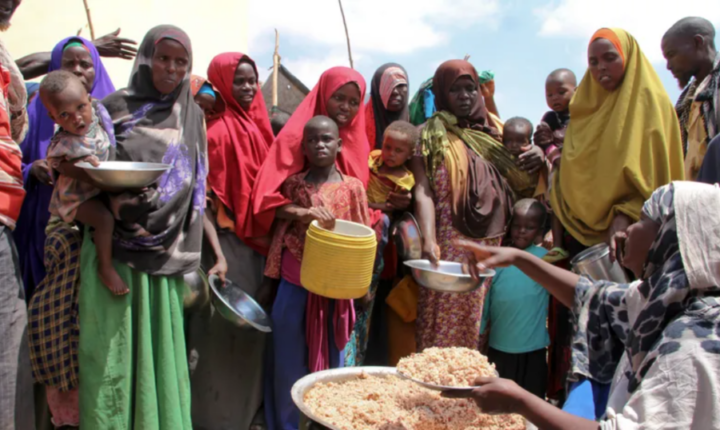In a recent report titled “African Regional Overview of Food Security and Nutrition 2023,” jointly published by the Food and Agriculture Organization of the United Nations (FAO), the African Union Commission (AUC), the UN Economic Commission for Africa (ECA), and the World Food Programme (WFP), the United Nations has highlighted a disconcerting reality: 78% of Africans, equivalent to over 1 billion people, are unable to afford a healthy diet in the aftermath of the COVID-19 pandemic.
The report’s estimates underscore a stark truth – three out of every four individuals on the continent grapple with the challenge of accessing nutritious meals. This glaring statistic is particularly alarming when compared to the global level, where only 42% of the population faces similar difficulties.
The root cause of this profound challenge lies in the surge in food prices across Africa, amplified by the Russia/Ukraine crisis, which disrupted the global supply chain, particularly for crucial grains like wheat. The consequences of this crisis have triggered a domino effect, pushing the continent into a severe food security crisis.

Nigeria, the economic giant of West Africa, is grappling with a staggering 27.3% inflation rate, with food inflation soaring even higher at 31.5%. This trend is not unique to Nigeria alone; countries across the Sub-Saharan Africa (SSA) region are witnessing unprecedented levels of food inflation. South Africa, for instance, experienced a 14-year high in inflation in March, while Ghana witnessed a nearly 50% surge in September.
The alarming increase in food prices coupled with political instability in various regions has intensified hunger across the continent. Displacement due to armed violence in West and Central Africa and the existential threats posed by climate change and extreme weather in East Africa have disrupted communities and livelihoods.
The impact of rising prices is acutely felt by consumers, eroding their purchasing power and driving more people into poverty. The World Bank estimates that approximately 7 million people in Nigeria alone will slip into poverty due to inflation triggered by the removal of fuel subsidies in May.
The report further reveals that around 20% of Africa’s population, equivalent to nearly 282 million people, is currently grappling with undernourishment. This marks an alarming increase of 57 million individuals since the onset of the COVID-19 pandemic. Additionally, over a billion people in the region find themselves unable to afford a nutritious diet, while roughly 30% of children suffer from stunted growth due to malnutrition.
Despite concerted efforts in several countries, the report paints a grim picture – Africa is veering off course from achieving the food security and nutrition targets outlined in the Sustainable Development Goals by 2030. Similarly, the Malabo targets, aimed at eliminating hunger and all forms of malnutrition by 2025, seem increasingly elusive in the face of the current challenges.
In conclusion, Infostride News delves into the profound implications of the UN report, shedding light on the urgent need for comprehensive strategies to address the multifaceted issues contributing to food insecurity across the African continent.
Support InfoStride News' Credible Journalism: Only credible journalism can guarantee a fair, accountable and transparent society, including democracy and government. It involves a lot of efforts and money. We need your support. Click here to Donate
